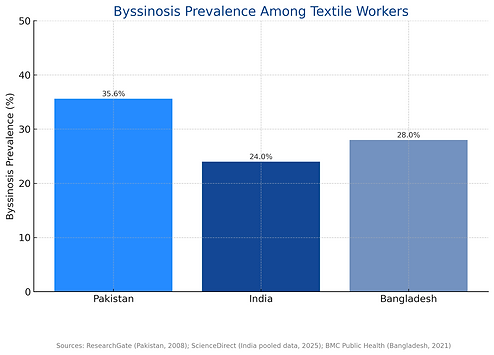
Screening at Work
Good health starts with early detection. Regular health screening helps catch potential issues before they become serious, protecting employees from long-term illness and reducing the burden of chronic disease in the workplace. For employers, this means lower absenteeism, reduced healthcare costs, and better control over rising insurance premiums. Research shows that for every $1 invested in workplace health initiatives, companies can expect a $2.5–$4 return through improved productivity and fewer sick days (WHO, Workplace Health Promotion, 2019).
Healthtech International makes preventive care simple by bringing corporate health screening directly to your workplace. Whether it’s factory workers on the production line or office staff in administration, our on-site services are designed to be accessible, efficient, and minimally disruptive to daily operations.


Our Services
-
General Health Checks – vital signs, BMI, blood pressure, cholesterol, and more.
-
Occupational Risk Screening – tailored to workplace hazards, including respiratory health, hearing, and musculoskeletal assessments.
-
Chronic Disease Screening – early detection of conditions such as diabetes, hypertension, and heart disease.
-
Wellness & Lifestyle Guidance – practical advice to support healthier living and long-term wellbeing.
Every employee receives a personalised health report, while employers gain workforce insights to guide wellness initiatives and support compliance with workplace health and safety standards. Studies show that regular screenings can reduce absenteeism by up to 30% and lower long-term insurance claims by 20–25% (ILO, 2020; BMC Public Health, 2021).
*Services may vary from country to country.

Breathing Easy in the Textile Industry
The Hidden Cost of Textile Dust
In the hum of textile mills, where machines run day and night and fibres float unseen in the air, a quiet threat looms - occupational lung disease. Studies in South Asia show that up to 25% of textile workers suffer from respiratory issues, which is far higher than workers in other industries (PMC, 2022). These conditions don’t just affect health; they reduce productivity, increase absenteeism, and drive-up healthcare costs for companies.
Byssinosis: The “Brown Lung” Disease & Beyond
One of the most notorious illnesses in the textile industry is byssinosis, often called “brown lung.” Caused by long-term exposure to cotton dust, it leads to chronic coughing, wheezing, and progressive shortness of breath. In Karachi, Pakistan, a study found that 35.6% of workers were affected by byssinosis (ResearchGate, 2008). Across India, Pakistan, and Bangladesh, prevalence rates vary widely, ranging from 8% to 38% depending on factory conditions (BMC Public Health, 2021).
Not every respiratory illness in textile workers is byssinosis, but the overall burden of disease is heavy. In one South Asia-based study, 56% of workers reported at least one respiratory symptom, and 43% struggled with shortness of breath (PubMed, 2023). Lung function tests further confirm the damage: in some factories, 40% of workers showed measurable reductions in lung capacity, particularly in high-dust areas such as spinning, carding, and cleaning.
The prevalence of these conditions may differs from country to country, but the risks are widespread. Poor ventilation, inadequate dust control, and lack of protective equipment continue to put workers in low to middle-income countries at significant risk.


Why Screening Matters
Dust, fibres, and chemical exposure in textile factories place workers at a significantly higher risk of developing serious respiratory illnesses such as byssinosis, asthma, and chronic bronchitis. Left unchecked, these conditions often lead to long-term disability, frequent absenteeism, and escalating healthcare costs for both workers and employers. Regular on-site health screening plays a critical role in detecting early signs of damage before they become irreversible. When combined with preventive measures such as improved ventilation, effective dust extraction systems, and the use of protective gear, companies are able to safeguard worker health, reduce absenteeism, and control healthcare expenses while also reinforcing their sustainability commitments. After all, sustainability is not only about cleaner fabrics, it is equally about healthier people.


Putting People at the Heart of Sustainability
At Healthtech International, we believe that true sustainability goes far beyond the choice of materials - it must also safeguard the very people whose work brings those materials to life. Factories cannot be sustainable if the workers within them are unwell. Protecting human health is therefore not only a moral responsibility but also a business imperative for companies seeking long-term resilience and global competitiveness.
Our specialised textile industry health screenings are designed to detect lung-related and other occupational health issues at an early stage, before they progress into chronic and debilitating conditions. By addressing risks such as byssinosis, asthma, and other respiratory illnesses common in textile manufacturing, we help workers remain healthy, safe, and productive. In turn, companies benefit from lower absenteeism, reduced healthcare costs, and improved operational efficiency.
This approach strengthens corporate responsibility and ensures that sustainability is not confined to greener fabrics or cleaner supply chains, but is rooted in the well-being of the workforce itself. We enable businesses to reduce risks, safeguard their most valuable asset - their people, and demonstrate leadership in building a textile industry where innovation, social responsibility, and health go hand in hand.